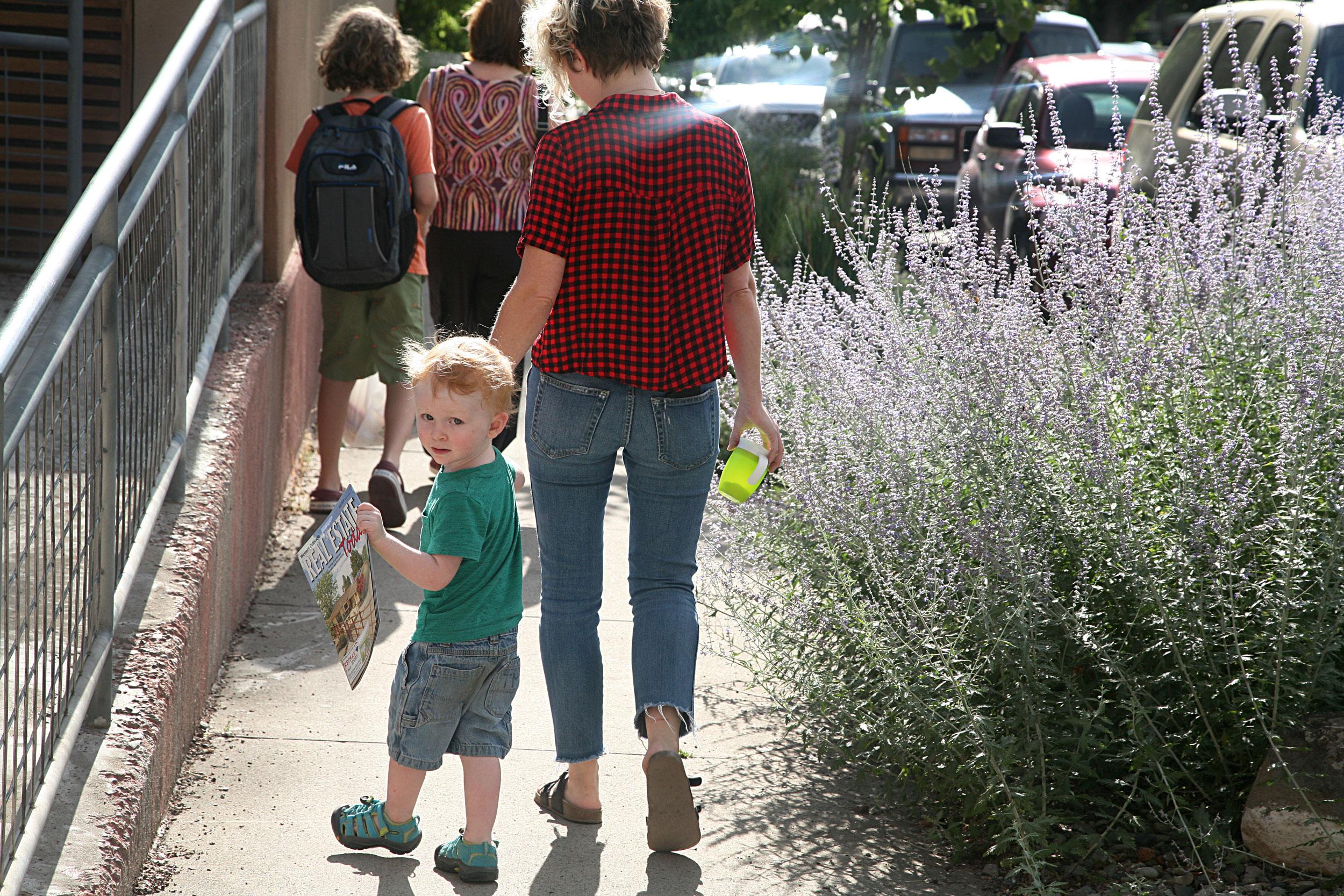
Two-and-a-half years after giving birth to a curious, red-headed son named Sebi, artist Brigid McAuliffe has just started to emerge from what she calls “the cocoon.” She admits there were moments where she wondered, “Will I ever do anything again?”
It was a doubt she overcame in her two weeks in Paonia, a tiny, former coal town in western Colorado that's made a name for itself in recent years as a haven for artists and counter-culture types. She was an artist in residence in the Elsewhere Studios program.
For the vast majority of artist residencies, a family is almost patently not welcome. The artist is artificially separated from parenthood. But for the first time this summer, Elsewhere opened itself up to five artists — mostly mothers — who may not have had access to it otherwise. The Sustainable Arts Foundation, whose mission is to support artists with children, backed the approach with a grant.
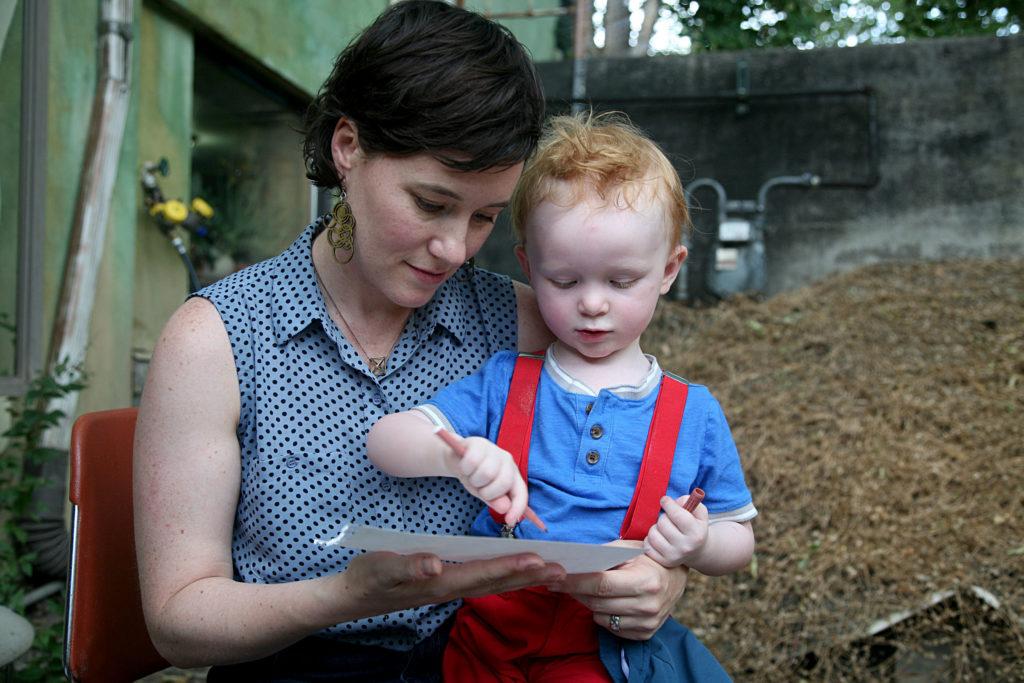
McAuliffe’s latest work documents the food producers of the North Fork Valley through video, ceramics, music and other mediums. While she spent time with local farming families, her friend Hanna looked after Sebi. At the end of the day, they’d all reconnect.
“I feel so alive when I’m immersed in a project and I know it’s who I am and what I should be doing because I totally lose track of time,” McCauliffe said. “And I feel the same way about being Sebi’s mom.”
Accomplishing both at the same time can feel impossible, she said, especially in these early dependant years of his life. She’s loved it, she said, yet it’s also been “all-consuming” to the point where she didn’t know if she could still call herself an artist.
“Which is why this residency is amazing, to be able to step outside of that and see myself as an artist and a mother again, as one,” she said.
Ukhona Ntsali Mlandu came to Elsewhere from South Africa and can relate to McAuliffe’s question. Often, she’s had to explain herself in certain creative environments, where many male artists who are fathers aren’t asked to do the same.
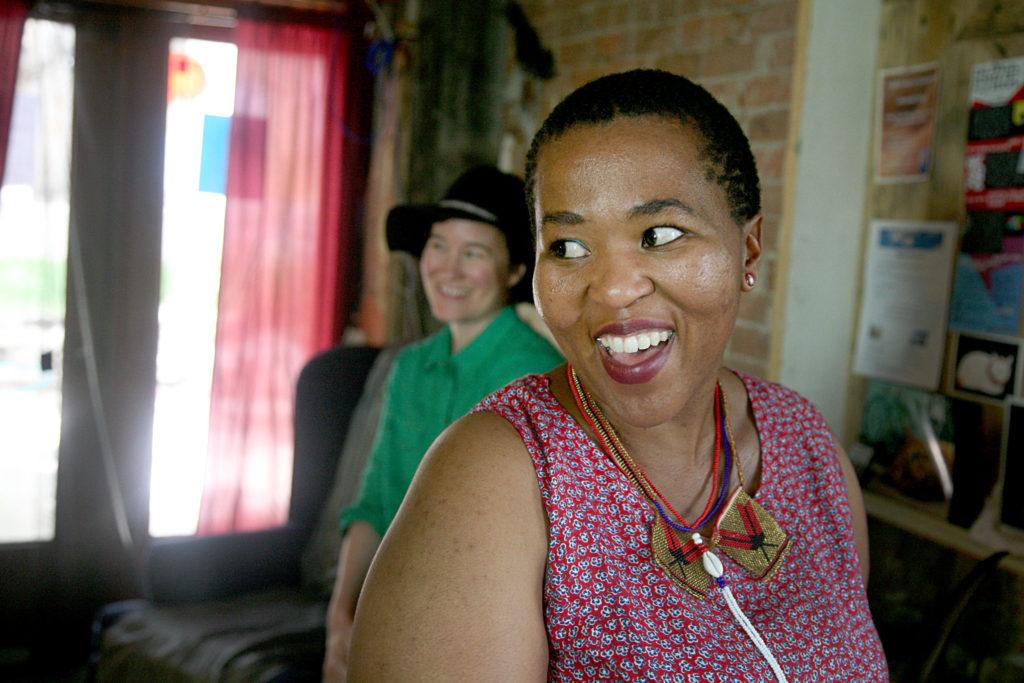
“Because the center of your world is meant to be your children,” she said. “I mean, I’m not going to even try and perform that.”
Being a single mom has changed her art. She’s incorporated both her 15-year-old and 10-year-old daughter into her live art installations about trauma, gender roles and decolonization. Neither could come to this small town in Colorado this summer due to visa issues.
The collaboration with her children was both about the work at hand and their survival as a family. Even though she’s successful, well-received and travels for her work, the financial reality of being an artist and a mother is scary because there “aren’t enough resources geared towards making sure that people, women who are mothers are supported.”
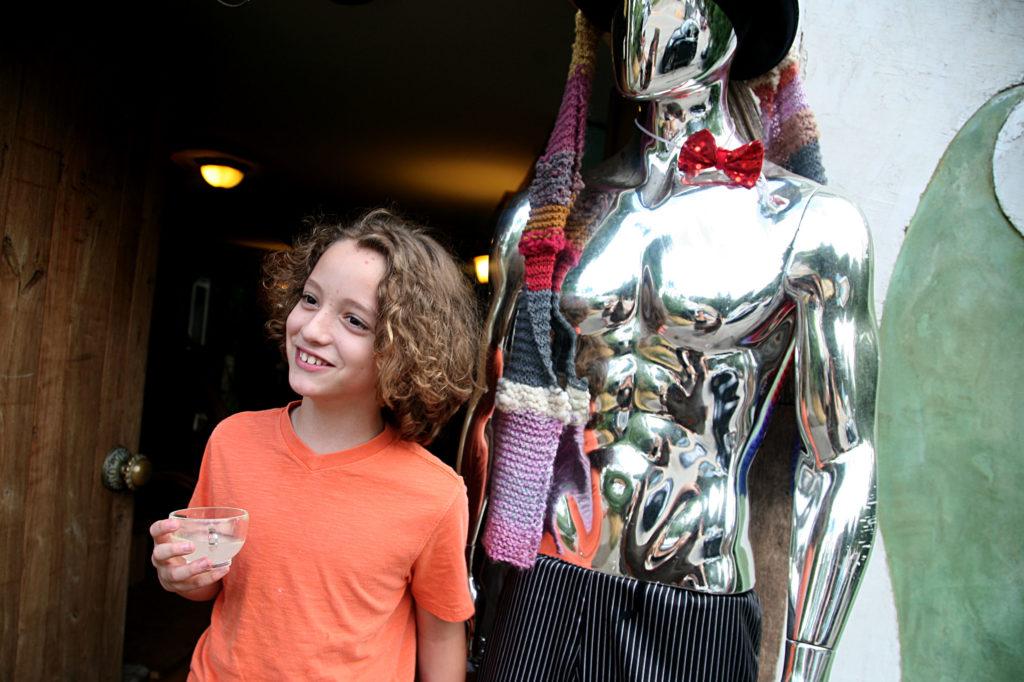
For Spanish-born artist Maria Velasco, this residency is a chance to talk about the challenges of being an artist-mother, to hear about resources and tips and just to know she’s not alone.
“People have maneuvered these roles in different ways,” she said. “But it is very inspiring to me to see that you don’t have to give up.”
Velasco, a professor at the University of Kansas, is making a documentary that asks how one can be an artist and a parent at the same time. She’s living one answer. During the residency, she and her 9-year-old son Alex collaborated on a hand-drawn, hand-painted card game. The project, something they came up with together, is a tribute to Elsewhere’s whimsical courtyard, Hobbit-like-buildings and a charismatic cat named Tomatoes. “It really is quite beautiful, to have a sounding board, someone you can create an idea with from scratch,” Velasco said.
As for her son Alex, it was “better than me staying at home,” he said with a grin and a laugh.
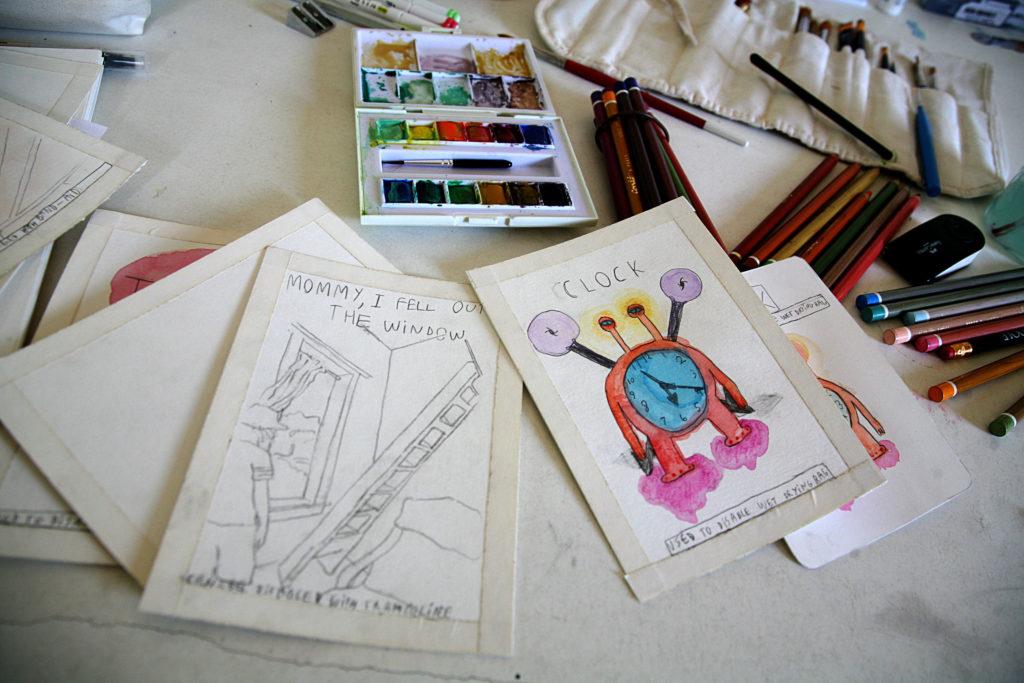
Velasco has decided she’ll only apply to residencies in the future where she doesn’t “have to choose between my job and my kid and the content of my work and keep all those areas separate because that doesn’t make sense to me.” The ability to bring these aspects of herself together here, at Elsewhere, has been a transformative experience for her — and the other artists in the grant-supported residency.
As a relatively new mother, McAuliffe was inspired by how other moms balanced creativity and responsibility. While the culture often seems to pit art and parenting against each other, McAuliffe sees their similarities. There’s no formula for either, she mused, which makes them both exciting and difficult at the same time.
“That’s another thing art and parenthood have in common is that it’s very impractical,” she said with a big, tired smile. “But you do it for the love. You do it because something deeper drives you.”








